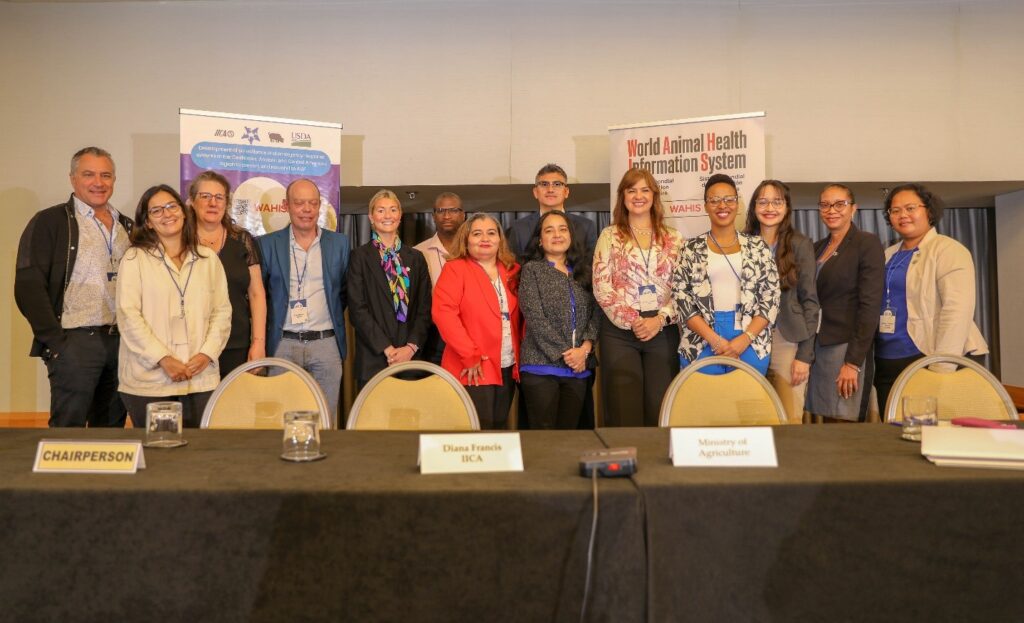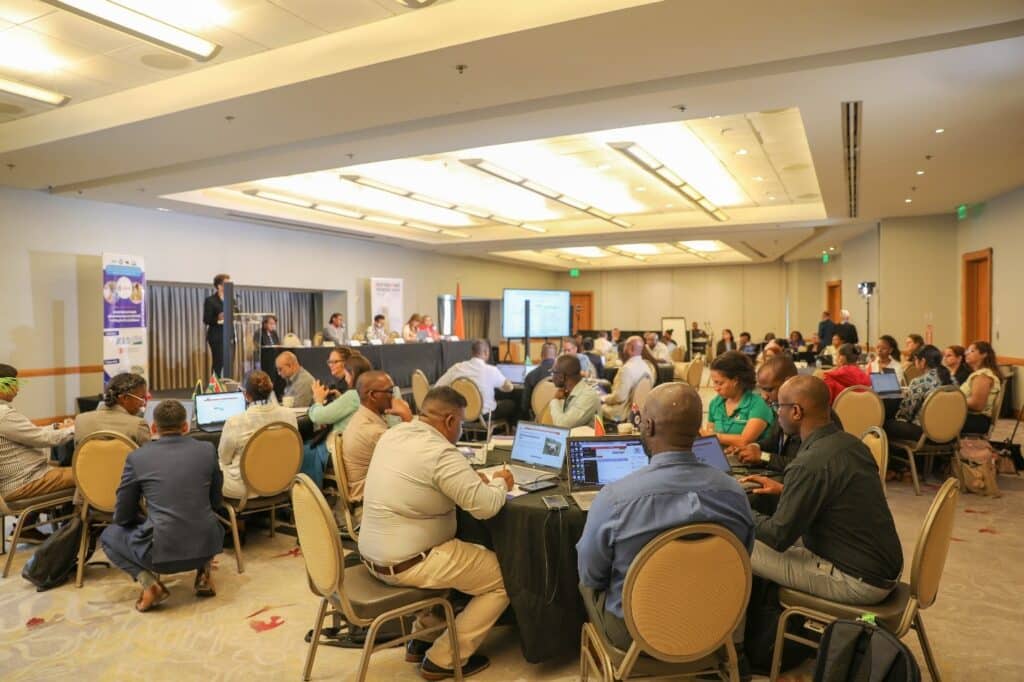
The workshop gave participants the opportunity to enhance their expertise in the areas of disease reporting, risk management, and biosafety measures.
Port of Spain, Trinidad and Tobago, 21 May 2025 (IICA). As part of the ongoing efforts to improve animal health protection and food safety in the Caribbean, a training workshop was held in Port of Spain, Trinidad and Tobago, on the World Animal Health Information System (WAHIS).
The meeting was organized in collaboration with the United States Department of Agriculture (USDA), the Inter-American Institute for Cooperation on Agriculture (IICA), the World Organization for Animal Health (WOAH), and the Caribbean Agricultural Health and Food Safety Agency (CAHFSA).
The workshop gave more than 100 participants from Caribbean Community (CARICOM) countries the opportunity to enhance their expertise in the areas of disease detection, risk management, and biosafety measures during two days of intensive, hands-on training. The focus was on the threat posed by African Swine Fever (ASF).
The training was delivered by a team of six experts from WOAH Headquarters in Paris, who provided participants with the latest strategies and methodologies for effective disease reporting and response planning.
The working sessions addressed key issues, including governance frameworks, disease reporting protocols, and real-time data analysis through the WAHIS, an internationally recognized system that enables countries to respond to outbreaks quickly and effectively.
Eric Coleman, Director of Emergency Programs for the USDA’s Animal and Plant Health Inspection Service (APHIS), explained that safeguarding animal health is a global challenge: “USDA recognizes the importance of supporting initiatives aimed at strengthening surveillance and reporting systems. By providing access to the WAHIS, this training adds a valuable tool to the region’s toolbox, facilitating access to global animal health data and improving decision-making regarding animal health.”
Diana Francis, IICA Representative in Trinidad and Tobago, emphasized that collaboration and science-based solutions are essential to address current animal health threats: “IICA is fully committed to supporting efforts based on the One Health philosophy, as it recognizes that animal health goes beyond livestock and includes pets and wild animals. The threats to animal health recognize no borders or economic status, so regional collaboration is essential.”
Ericka Calderón, who leads the project “Surveillance and Response for the Prevention of African Swine Fever (ASF)in the Americas,” pointed out that IICA sponsored the WAHIS workshop as part of its commitment to strengthening animal disease surveillance and response in the Caribbean, in close collaboration with regional partners.
Both Lisa Musai, Chief Veterinary Officer at Trinidad and Tobago’s Ministry of Agriculture, Land and Fisheries, and Tiffany Chisholm, Senior Veterinary Officer at the Cayman Islands Department of Agriculture, highlighted the importance of the workshop and collaboration among Caribbean countries, given the high risk of disease transmission.

Key issues such as governance frameworks, disease reporting protocols, and real-time data analysis were addressed in the working sessions.
Regional collaboration for a more resilient future
By enhancing the technical expertise of WOAH National Focal Points and other key stakeholders, the training lays a solid foundation for improving biosafety and trade.
Catya Martínez, WOAH Subregional Representative for Central America and the Caribbean, acknowledged the need to strengthen disease reporting and surveillance, adding that the continued provision of technical assistance and targeted training is helping countries build institutional capacity and maintain effective monitoring systems.
CAHFSA Animal Health Specialist Nneka E. A. Hull James noted that the “training represents a major step forward in strengthening animal disease surveillance and reporting in the Caribbean. It also reinforces our commitment to compliance with global animal health standards.”
More information:
Institutional Communication Division.
comunicacion.institucional@iica.int











